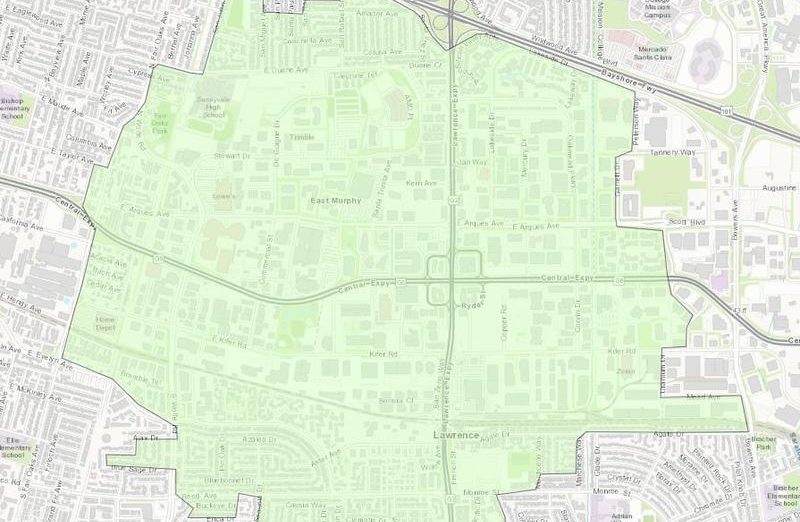This post is from Nextdoor and is authored by Public Information Officer Laurel Anderson, County of Santa Clara
The Santa Clara County Vector Control District (SCC VCD) has confirmed West Nile virus (WNV) positive tests in adult mosquitoes collected from an area around portions of the 94085, 94086, 95051 and 95054 ZIP code areas that include parts of the cities of Sunnyvale and Santa Clara.
A truck-mounted adult mosquito control treatment is scheduled in the area around the detection site, in an effort to prevent human cases of WNV. Weather permitting, the ground operations will start at 11 p.m. on Thursday, July 26, and will end a few hours later. View treatment area map: https://arcg.is/0uKebH
Monday through Friday, Vector Control staff will be available to answer any questions from the public at a dedicated phone number — 800-314-2427 — from 7:30 a.m. to 4:30 p.m. Questions can also be submitted by email to vectorinfo@deh.sccgov.org.
The specific details of the operational areas are:
Treatment date: Thursday, July 26, 11:00 p.m., for approximately three hours
Supervisorial District: District 4 and District 3
Cities: Sunnyvale and Santa Clara
Treatment Zip codes: Portions of 94085, 94086, 95051, and 95054
Centered at: Central Expressway and Semiconductor Drive Bordered by:
- North – Lakeside Dr., E. Ahwanne Ave., Almaden Ave., Alvarado Ave., Amador Ave.
- East – Peterson Way, Garrett Dr., Oakmead Village Dr., Uranium Dr., Bowers Ave.
- South – Blue Sage Dr., Erica Dr., Gardenia Way, Fuchsia Dr., Lily Ave., Notre Dame Dr., Monroe St., Vincent Dr., Agate Dr.
- West – San Juan Dr., N. Fair Oaks Ave., America Ave., E. Evelyn Ave., S. Wolfe Rd.
Door hangers notifying the public of the scheduled mosquito treatment will be placed in neighborhoods beginning Tuesday, July 24. Notice is also being sent directly to the public in the treatment ZIP codes through AlertSCC.
During the adult mosquito control treatment operations, there is no need to relocate. However, those who wish to minimize exposure for family members or pets may wish to close windows and remain inside during the scheduled time period, which typically lasts three hours. Individuals who have chemical sensitivities may want to consult their physicians. All control treatments utilized are approved by the Federal and State Environmental Protection Agencies and are widely used by Vector Control agencies throughout California.
Mosquito and West Nile Virus Prevention
You can help prevent mosquito-breeding sources and the spread of West Nile Virus.
Learn more: Fight the Bite (English): http://bit.ly/FightTheBiteEnglish
Fight the Bite (Spanish): http://bit.ly/FightTheBiteSpanish
Fight the Bite (Vietnamese): http://bit.ly/FightTheBiteVietnamese
Report Mosquito Sources
Contact the Santa Clara County Vector Control District if you are being bothered by mosquitoes or know of a potential mosquito-breeding source. To report a complaint about mosquito activity (including day-biting mosquitoes) unmaintained swimming pools, or standing water in gutters and other possible receptacles, contact the District at (408) 918-4770 or go to www.sccvector.org and report it through the online form: https://www.sccgov.org/sites/vector/service-request/Pages/home.aspx.
Health Effects of West Nile Virus
Since the arrival of WNV to California in 2003, 6,592 people across the State have contracted the disease; 292 of those cases were fatal. In 2017, there were 44 human West Nile Virus related fatalities; 2015 was a record year for fatalities in the state with 53 deaths. WNV infection does not cause symptoms in most people; however, for some individuals, it can cause fever, headache, body aches and, in severe cases, significant neurological damage or death. Adults older than 50 years and individuals with certain chronic medical conditions such as diabetes, high blood pressure, cancer and kidney disease are most at risk for serious complications.






